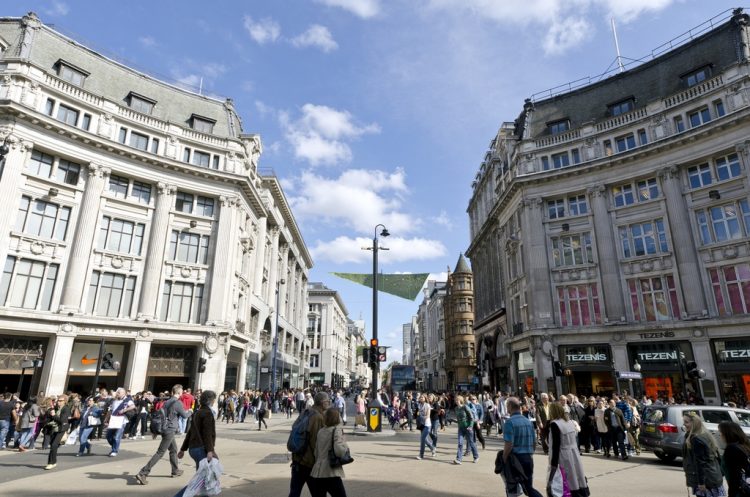Renaissance of High Street Puts Focus on Customer Experience

Traditional retailing is going through a difficult period of transition with stores closing and retail space occupancy rates falling. But some of the empty space is being occupied by newcomers to the High Street who see big benefits in having a physical presence to get closer to the customer and create experiences that eCommerce cannot offer.
For example, Microsoft has opened its first European store in London’s prestigious Oxford Street, while Vans, the US sports shoe brand, is also moving into this famous shopping street, close to Nike Town London, the flagship store of rival Nike, which has had a store in London since 1999.
Vans will rent what was the flagship store of Miss Selfridge, the woman’s fashion retail chain, which is closing as part of the rescue deal for the troubled Arcadia Group retail empire.
Amazon gets physical
It’s not just multinational brands like Microsoft, Vans and Nike that recognize the importance of a High Street presence. Online giant Amazon now has around 600 physical outlets in the US, including its Amazon Go checkout-free convenience stores, Amazon Clicks and Mortar pop-up stores, and Whole Foods Market, which it acquired in 2017.
The eCommerce giant now wants to expand its physical presence outside the US and is working on opening ten pop-up stores in town centers across the UK as part of a year-long pilot aimed at giving small online retailers a taste of physical retailing for the first time.
The initiative is a collaboration between the online giant and small business network Enterprise Nation. Amazon’s first Clicks and Mortar store in the UK opened in Manchester in June and a second has just opened in Cardiff.
Emma Jones, Founder of Enterprise Nation, said:
“UK shoppers like to shop both online and in high street stores, and our intention is to help small businesses succeed by combining the best elements of online and high street retail.”
More and more online-only retailers are realizing the unique advantages of having a physical store, particularly those selling products that benefit from letting customers smell, touch or taste them before buying.
But the retailers that have taken space in Amazon’s Manchester store offer a seemingly random mix of products, making it difficult to create a cohesive or memorable shopping experience.
Indeed, Brand Vista, a customer experience consultancy, describe Amazon’s initiative as a “missed opportunity.”
While Amazon is be the undisputed King of eCommerce, it has a lot to learn about physical retailing. Brand Vista says:
“Amazon seems to be naive to the fact that the fierce battleground of the high street has forced brick-and-mortar retailers to up their game – namely in customer experience.”
Want to learn more about how brick-and-mortar retail is fighting back? Read our blog post about experiential retail, watch our on-demand webinar, Transforming the store and customer experience for an omnichannel world, or download the presentation here.




No Comment